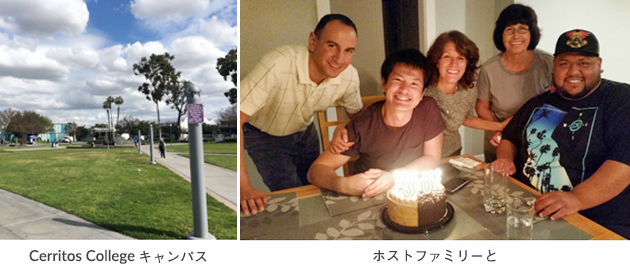

|
||||||
|
||||||
|
留学したらどんな生活? このコーナーでは、実際に留学中の学生からの生の声をお届けします!
<日米学生気質> こんにちは。私がアメリカに来てそろそろ2年が経過しようとしています。そこで今回は、日本の四年制大学を卒業し、アメリカのカレッジ(短大)で勉強している私から、両者の違いについて感じたことを述べていきたいと思います。 まずは、学生の授業態度、授業の雰囲気が違います。日本の大学の授業では、授業時間の中で教授の話を聞いている時間が多く、学生からの質問はあまりないように感じます。そして、学生がよく寝ています(私もたまにその一人でしたが・・・)。アメリカのカレッジでは、寝ている学生はほとんどおらず、みんな授業を聞いているといった印象です。 そして、とにかく質問します。良い質問から、さっき説明していたけどな?というものまで色々な質問が飛び交います。私がアメリカのカレッジのいいところだなと思うのが、どんな質問をしても誰も笑わないというところです。日本だと、誰かが間違いをした時によく笑ったり、からかったりすると思います。多くの人がそれを恐れて質問することを躊躇すると思うのですが、アメリカの教授は、どの質問に対しても「That's a good question.」、「いい質問だね。」と言ってくれます。これは、また質問しようと思える気分になりますね。 また、とにかく勉強をする人が多いという印象です。アメリカのほとんどの授業で2、3週間に1回テストがあるので、semester(学期)の始めの週から図書館で勉強している人が見られます。そして、ほとんどの学生が明確に目標を持って学校にいるので、卒業したい、学位を取りたいと思うなら勉強をする、そうでないなら学校を辞めて働くといった人が多いです。アメリカ人は時間を無駄にすることを嫌うので、やりたくないと思ったらやめて自分のやりたいことを見つける為に行動をするといった印象があります。 以上のことは、日本は大学入試まで必死に勉強をし、大学ではその開放感から、勉強よりもバイトや色々なことを経験するために時間を費やすといったことや日本人の文化が影響していると思います。アメリカは高校を卒業するまでスポーツなどを経験することに力を入れあまり勉強をしないと聞いたこともあり、それがカレッジからの勉強の原動力になっているかもしれません。 私にとっては、日本の大学で過ごした時期もアメリカで過ごしている今の時期も重要と感じるので、どちらがいいというのは一概には言えませんが、私の経験談が少しでも役に立てば幸いです。 
|
||||||
|
||||||
| このメールマガジンは、IGEニュースレターにご登録頂いた皆様、またIGE関係者の方にお送りしております。留学にご興味がなく、このニュースレターを希望されない場合は、IGEニュースレターの配信は、直ちに停止します。このメールマガジンを今後ご不要な方は、誠にお手数ですが、件名に「IGEニュースレター配信停止希望」とお書きになって、以下に本メールが送られてきたメールアドレスをご記入の上ご返送ください。メール転送サービス等をご利用の方は「IGEニュースレター」にご登録のメールアドレスをご記入ください。 お名前→ 停止希望のメールアドレス→ 返送先 news@weexchange.com このメルマガの著作権はIGEにあります。無断転載はお断り致します。 |





